Posted in Books on 01/08/2010 02:13 pm by Stephen Tindale
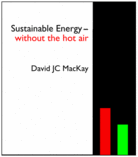
Anyone who cares about the survival of human civilisation should read this book. It is packed with facts and statistics about solutions, and shows that we must stop arguing about which is cheapest or best, because we need all of them.
read more »
Posted in Comment on 08/01/2011 01:56 pm by Stephen Tindale
The Blue Ribbon Commission on America’s nuclear future, set up by President Obama, has now issued a draft report. It seeks to avoid the most controversial issues, and doesn’t consider the most promising new nuclear technology – thorium molten salt reactors – so is disappointing.
read more »
Posted in Comment on 02/01/2010 09:54 am by Stephen Tindale
Last week, I went to Chile to take part in a conference about energy policy – mainly about whether Chile should build nuclear power stations. The current Chilean government has been discussing nuclear energy for the last three years, but has not said yes or no.
read more »
Posted in Comment on 05/10/2010 10:07 am by Stephen Tindale
The world faces an urgent climate crisis. There is no time to lose. However, the UK general election has produced no winner and, at the time of writing, it is still not clear who will form the next government.
read more »
Posted in Comment on 05/11/2009 11:33 am by Stephen Tindale
Last week, I went to Rome to talk to Chicco Testa, who used to be chairman of Enel, Italy’s largest energy utility (and the third largest in Europe). He has now set up an organisation called NewClear to press Italy and other European countries to build new nuclear power stations.
read more »
Posted in Comment on 11/12/2009 12:49 pm by Stephen Tindale
On 9 November Ed Miliband, the UK Energy and Climate Change Secretary, published National Policy Statements outlining the government policy on energy. These are intended as guidance to the new Infrastructure Planning Commission (IPC), which, from next March, is due to grant or refuse planning permission on major energy and transport infrastructure projects. The statements are good on renewables, nuclear and electricity networks, but less good on coal.
read more »
Posted in Comment on 10/12/2010 02:07 pm by Stephen Tindale
The South African government has published an energy plan which proposes a decline in the use of coal and six new nuclear power stations. The country is not short of coal, so the government should be commended for exploring alternatives.
read more »
Posted in Comment on 12/13/2013 02:41 pm by Stephen Tindale
Friday the 13th – and reasons to be gloomy about UK energy policy
read more »
Posted in Comment on 05/13/2010 10:23 am by Stephen Tindale
The UK has a new government and the prospects for climate policy are mixed. The promised policies on aviation and coal are stronger than those of the former Labour government. The approach to renewables is similar to that of Labour. However, the approach on nuclear power looks like a recipe for muddle and delay.
read more »
Posted in Comment on 04/14/2010 07:42 am by Stephen Tindale
The danger of nuclear weapons proliferation is the strongest argument against using nuclear power generation as a low carbon bridge technology.
read more »
Posted in Comment on 07/14/2009 08:02 pm by Stephen Tindale
On Monday, 13 July 2009, Ed Miliband, the UK Energy and Climate Change Secretary, opened the Little Cheyne Court wind farm in Kent. With a capacity of just under 60Mw, this is the largest wind farm in South East England.
read more »
Posted in Comment on 03/14/2011 10:23 am by Stephen Tindale
The horrific current events in Japan must make all who favour nuclear power question our support. I have spent much of the weekend doing so, but still believe that nuclear power is a necessary, low-carbon bridge-technology, until the world can be 100% reliant on renewables.
read more »
Posted in Comment on 05/14/2014 11:37 am by Stephen Tindale
Swiss paper Le Temps has now published (in French) my article on the need for a new narrative for European integration. Here is the English version.
read more »
Posted in Comment on 05/14/2014 11:47 am by Stephen Tindale
The Economist has published my short article on why we need energy efficiency plus all clean energy sources: renewables, carbon capture and storage and nuclear.
read more »
Posted in Comment on 07/15/2016 09:01 am by Stephen Tindale
The UK no longer has a department with the words ‘climate change’ in its title. Climate policy is now the responsibility of a new Department of Business, Energy and Industrial Strategy. This could be seen as a downgrading of climate action – and has been condemned by some green groups. But I think it is […]
read more »
Posted in Comment on 03/15/2012 04:57 pm by Stephen Tindale
Four former heads of Friends of the Earth wrote to prime minister, David Cameron, earlier this week, arguing against nuclear power. In response, five environmental authors – including me – have written to Cameron arguing in favour of new nuclear.
read more »
Posted in Comment on 09/15/2011 02:07 pm by Stephen Tindale
Is gas sufficiently low-carbon to be an adequate bridge technology? No – it’s emissions for every unit of electricity produced are over three times as high as emissions from nuclear power.
read more »
Posted in Comment on 02/16/2010 01:20 pm by Stephen Tindale
Robert Watson, the Chief Scientist at the UK Department of Environment, has been prominent in the media defending climate science. He accepts that the Intergovernmental Panel on Climate Change was wrong to include, in its Fourth Assessment Report, the prediction that Himalayan glaciers will be gone by 2035. However, he points out that, in other respects, the report was also cautious – some say over-cautious.
read more »
Posted in Comment on 06/16/2009 12:03 pm by Stephen Tindale
On Saturday, I was on a panel at the World Science Festival in New York, with James Hansen of NASA and three others. Hansen’s position on nuclear can be summarised simply: it’s better than coal.
read more »
Posted in Comment on 12/17/2010 02:08 pm by Stephen Tindale
UK Energy Secretary, Chris Huhne, has proposed a radical overhaul of the UK’s electricity market. This is good news, but the government must do more to combat fuel poverty.
read more »
Posted in Comment on 07/17/2009 07:33 pm by Stephen Tindale
On Wednesday 15 July 2009, the UK government published its plan to make the UK a low carbon economy. It is good on electricity, quite good on energy efficiency and heat, but bad on transport.
read more »
- Tags: carbon capture, carbon tax, CCS, CHP, climate change levy, coal power, decarbonisation, energy efficiency, fuel poverty, nuclear power, renewables, statistics, wind power
Posted in Comment on 05/17/2010 08:14 pm by Stephen Tindale
On Saturday, I was in Naples to talk at a seminar on the case for nuclear power. The most striking – and worrying – thing for me was that one of the other speakers argued that nuclear power was desirable, but not for climate reasons.
read more »
Posted in Comment on 04/18/2010 03:04 pm by Stephen Tindale
The manifestos of the three main UK political parties, Conservative, Labour and Liberal Democrat, all agree that climate change is an extremely serious issue and that tackling it can be done in ways which enhance energy security and strengthen the UK economy.
read more »
Posted in Comment on 02/18/2010 09:41 pm by Stephen Tindale
In November 2009, 3% of OECD electricity was generated by renewables other than hydro. 14% came from hydro. And this was only 17% of what electricity was then used, not total energy used.
read more »
Posted in Comment on 01/18/2017 08:45 am by Stephen Tindale
Last week the former energy minister Charles Hendry published his review on tidal lagoons (https://hendryreview.wordpress.com/) I am a consultant to Tidal Lagoon Power (TLP), so not disinterested. But I think that anyone reading the report will recognise it as an extensive, evidence-based and therefore serious review. Hendry was in my view a good energy minister […]
read more »
Posted in Comment, Policy on 11/19/2015 09:57 am by Stephen Tindale
UK climate and energy policy are not perfect, but are in significantly better shape this morning than they were yesterday morning
read more »
Posted in Comment on 10/19/2010 07:45 pm by Stephen Tindale
Yesterday, I spoke at a conference in London on thorium nuclear energy and molten salt reactors. Generally, my view is that nuclear is a necessary, low-carbon bridge technology, but that, to keep costs down, the same designs should be used, as the French have done, rather than each new reactor being an ‘innovation’, which is the UK approach.
However, thorium could be a valid exception to this.
read more »
Posted in Comment on 04/02/2012 12:54 pm by Stephen Tindale
The UK is running another competition on CCS. But practical progress so far has been precisely zero. And Eon and RWE have pulled out of their UK nuclear joint venture. So there’s a real risk that the UK will experience another ‘dash for gas’ without CCS.
read more »
Posted in Comment on 07/02/2009 03:47 pm by Stephen Tindale
Sweden has taken over the six-month presidency of the EU. It was also president when Bush withdrew the US from the Kyoto Protocol and was central in rescuing this treaty. Therefore, the arrival of Swedes is good news for the Copenhagen Conference later this year.
read more »
Posted in Comment on 06/02/2011 10:33 am by Stephen Tindale
New nuclear stations in the UK are far from certain. But even after Fukushima, they are not impossible.
read more »
Posted in Comment on 04/20/2010 06:51 pm by Stephen Tindale
The Saudi Arabian government has announced that it will pursue nuclear and renewable electricity to meet the country’s rising demand for energy, driven by a rapidly expanding population and industrial base, and a growing need for desalinated water. It is not unusual for a government to announce support for nuclear or renewables, but it is quite striking for the country with the world’s largest known oil reserves, and the fifth largest gas reserves, to be planning to develop alternatives to fossil fuels.
read more »
Posted in Comment on 07/20/2009 02:47 pm by Stephen Tindale
Opponents of nuclear power often claim that supporting nuclear will inevitably mean that renewables will suffer. However, the evidence from France shows this need not be the case.
read more »
Posted in Comment on 05/06/2015 10:08 pm by Suzanna Hinson
Analyses what the parties standing UK-wide are promising to do about climate change.
read more »
Posted in Comment, Policy on 06/24/2015 09:03 am by Stephen Tindale
Key quotes from, and a few of my comments on, the excellent Lancet Commission report
read more »
- Tags: 'cap-and-trade', carbon tax, CCS, coal power, decarbonisation, energy efficiency, EU, nuclear power, Public health, renewables, solar power, wind power
Posted in Comment on 02/22/2010 09:43 am by Stephen Tindale
Later this week, a new Ukrainian President, Viktor Yanukovych, will be inaugurated. The word “Ukraine” means borderland and, to most outsiders, that is exactly how the country is regarded: the place between the EU and Russia or the place through which Russian gas travels to the EU – unless the Russians turn off the taps, as they did in 2006 and 2009. However, it is more important than that, and not only to Ukrainians.
read more »
Posted in Comment, Policy on 02/24/2014 08:05 am by Stephen Tindale
The Conservative Party is planning new subsidies for coal power stations. This is a striking historic reversal, because the Tories have traditionally been anti-coal.
read more »
Posted in Comment on 04/26/2010 03:48 pm by Stephen Tindale
This morning I attended an event called ‘Ask a Climate Question’ organised by a coalition of environment and development groups. The most striking aspect of the discussion was that, with the exception of nuclear power, there was broad consensus among the four parties.
read more »
Posted in Comment on 04/26/2012 12:41 pm by Stephen Tindale
Germany is planning several new coal and gas power stations – without CCS – to replace its nuclear stations. This is bad for the climate and also a waste of money.
read more »
Posted in Comment on 11/26/2009 01:12 pm by Stephen Tindale
Last night, I went to hear the UK’s shadow foreign secretary, William Hague, give a speech about what a UK Conservative government would do about diplomacy and climate change. This is one of a series of speeches on climate from the shadow cabinet this week, which is encouraging.
read more »
Posted in Comment on 05/27/2010 11:29 am by Stephen Tindale
The new UK government has now announced its legislative programme for the next 18 months and there is to be another energy bill. This is a good Bill and should be supported. The government has also announced how it will begin to reduce the deficit.
read more »
Posted in Comment on 09/27/2010 01:38 pm by Stephen Tindale
Ed Miliband was a good Energy and Climate Change Secretary, so the UK now has a ‘green’ Prime Minister, ‘green’ Energy Secretary and ‘green’ Leader of the Opposition. Now for some delivery…
read more »
Posted in Comment on 03/28/2011 07:03 am by Stephen Tindale
Yesterday’s election in the German region Baden-Württemberg, one of Germany’s richest regions, saw Angela Merkel’s CDU lose power after over half a century in office and there can be little doubt that the campaign was heavily influenced by the Japanese nuclear issue.
read more »
Posted in Comment, Technology on 07/29/2011 09:43 am by Stephen Tindale
Comments on Jonathon Porritt’s arguments against nuclear power.
read more »
Posted in Comment, Policy on 07/30/2016 06:15 am by Stephen Tindale
Dear Greg, Congratulations on your appointment to run BEIS. I welcome the creation of the new department (see http://climateanswers.info/2016/07/15-july-2016-new-british-government-a-step-forward-for-climate-strategy/). And it is great to have you back working on energy and climate change. I also welcome your decision to review the Hinkley Point C proposal, following yesterday’s Final Investment Decision by EDF. The UK needs […]
read more »
Posted in Comment on 12/03/2013 11:57 am by Stephen Tindale
UK energy policy is in utter confusion, but is EU policy any better?
read more »
Posted in Comment on 12/31/2009 03:35 pm by Stephen Tindale
The lack of substantial progress at Copenhagen, though not unexpected, has left many people close to despondency on climate change. There is now a serious danger that they will lose interest. More worrying is the danger that the media will lose interest, leading to politicians doing likewise.
read more »
Posted in Comment on 04/06/2010 09:31 am by Stephen Tindale
Today, the general election campaign will almost certainly begin formally, though, in practice, it has been well underway all year.
read more »
Posted in Comment, Policy on 12/07/2015 09:30 am by Stephen Tindale
The advance represented by Energy and Climate Secretary Amber Rudd’s ‘reset’ speech on 18 November has been pretty comprehensively destroyed by Chancellor George Osborne.
read more »
Posted in Comment on 01/07/2014 01:55 pm by Stephen Tindale
The German “Energiewende” is not doing as well as often claimed; but climate protection is too important for point-scoring or schadenfreude.
read more »
Posted in Comment on 06/07/2010 11:28 am by Stephen Tindale
Low carbon energy sources – renewables, CCS and nuclear – all require public financial support. In the UK, the new government has said that there will be no subsidy for new nuclear power stations. Before the general election, the Conservatives said that there would be no subsidy and the Liberal Democrats remain anti-nuclear. Without financial support, no new nuclear stations will be built. Nor will any renewables or CCS – offshore wind and CCS are, in the view of many, going to be even more expensive than nuclear.
read more »
Posted in Comment on 11/08/2011 03:47 pm by Stephen Tindale
Comment on the launch of the European Climate Foundation’s latest report, Power Perspectives 2030.
read more »
Posted in Comment on 12/09/2009 04:51 pm by Stephen Tindale
UK Chancellor of the Exchequer, Alistair Darling, today gave his pre-budget report to parliament. This included some good climate measures.
read more »
Posted in Behaviour, Policy, Technology on 06/05/2009 11:06 am by Stephen Tindale

Agriculture is only directly responsible for a small percentage of carbon emissions, but it is responsible for a higher percentage of total greenhouse gas emissions due to emissions of methane (particularly from cows) and nitrous oxide (from the use of manure and artificial fertilizers). As far as forests are concerned, as well as being beautiful, vital for biodiversity and home to millions of people, they are crucial carbon sinks.
read more »
Posted in Comment, Policy on 04/22/2015 03:41 pm by Suzanna Hinson
The EU should not buy electricity from countries with highly-polluting coal power stations, and should instead support efficiency and clean energy in these countries.
read more »
- Tags: biomass, carbon capture, CCS, CHP, coal power, decarbonisation, energy efficiency, nuclear power, renewables, solar power, wind power
Posted in Comment, Policy on 02/23/2015 02:10 pm by Stephen Tindale
CER has now published my policy brief on ‘State aid and energy: climate action is more important than the single market’.
read more »
Posted in Behaviour, Policy, Technology on 03/13/2009 05:30 pm by Stephen Tindale

Our website, Climateanswers.info, is broadly split up into three: technological answers, political answers and behavioural answers.
Why have we done this?
Well, this site is really about actions and not prohibitions – what we can do, rather than just what we shouldn’t. We do not wear hair shirts at Climate Answers and we are born optimists!
read more »
- Tags: 'cap-and-trade', biochar, carbon, carbon capture, electric cars, emission trading schemes, fiscal reform, nuclear power, organic food, solar power, wind power
Posted in Policy on 08/27/2009 11:56 am by Stephen Tindale

The Labour Party came to power in 1997 committed to devolving powers to Scotland and Wales, and re-creating a London-wide government. It was also determined to improve the political situation in Northern Ireland and was willing to use devolution to achieve this. Therefore, the last 12 years have seen considerable change to the constitution of the UK. Climate change was not a driving force behind any of this, but, nevertheless, the new tiers of government have had significant impact on what the UK is doing.
read more »
Posted in Policy on 04/07/2014 04:44 pm by Stephen Tindale
My comments to the European Commission, saying that it should approve the UK government’s application to sign a contract with EDF energy to build a new nuclear power station.
read more »
Posted in Policy on 11/18/2010 02:12 pm by Stephen Tindale

It is good news that the European Commission is addressing the nuclear waste issue. However, the draft directive is not particularly strong, not very ambitious and wrong to promote deep disposal as its preferred waste management option.
read more »
Posted in Technology on 05/21/2009 01:12 pm by Stephen Tindale

In my opinion, electric vehicles should be strongly supported. Those concerned about climate change too often take an overly anti-car position.
read more »
Posted in Policy on 04/17/2010 05:53 pm by Stephen Tindale

All three main UK parties take climate seriously and promise to reduce emissions and expand low-carbon energy. They all recognise the energy security and employment benefits. This article includes quotations from the relevant parts of the manifestos of the three main parties on heat and electricity – energy efficiency, fuel poverty and energy production.
read more »
Posted in Technology on 12/09/2009 09:48 am by Stephen Tindale
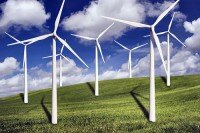
No form of electricity generation is entirely free of carbon emissions. So just how carbon free are the main types?
read more »
Posted in Comment on 04/12/2014 05:54 am by Stephen Tindale
My CER blog on how Europe should reduce its dependence on Russian gas
read more »
Posted in Comment, Policy on 03/28/2015 07:30 pm by Stephen Tindale
Climate campaigners should be more pragmatic and more prepared to make compromises. Pragmatism often delivers progress; idealism rarely does.
read more »
Posted in Policy, Technology on 06/05/2014 04:40 pm by Stephen Tindale
The Ecologist, an anti-nuclear magazine, has published my article defending nuclear power.
read more »
Posted in Comment, Policy on 02/02/2015 04:11 pm by Stephen Tindale
The Centre for European Reform has now published my article on GMOs. This post explains why I am now giving a public opinion, having kept quiet for several years.
read more »
Posted in Comment on 09/15/2016 03:47 pm by Stephen Tindale
The EPR is not the most promising reactor design – very complex and so very expensive. But now that the Government has decided to go with the EDF proposal, I hope Hinkley Point C is built as quickly as possible, without major problems and without going significantly over budget. And Greg Clark can now turn […]
read more »
Posted in Policy, Technology on 03/05/2010 03:01 pm by Stephen Tindale

There are several myths or misunderstandings that have grown up surrounding climate change and renewable energy. Both sides of the debate can be at fault. This article tries to debunk some of nonsense that is often cited as fact.
read more »
Posted in Repowering communities on 12/07/2011 04:12 pm by

Three months after the Fukashima nuclear reactor caught fire, Germany decided to phase out nuclear power. The decision stunned Europe’s energy policy community. Nuclear presently provides a quarter of Germany’s electricity – how would it plug the gap?
read more »
Posted in Comment, Policy, Technology on 10/23/2015 08:57 am by Stephen Tindale
The Committee on Climate Change sensibly calls for an ‘all of the above’ approach to decarbonisation.
read more »
- Tags: air quality, biofuel, biogas, biomass, CCS, decarbonisation, electric cars, energy efficiency, EU, nuclear power, renewables, solar power, tidal power, wave power, wind power
Posted in Policy, Technology on 10/15/2013 02:07 pm by Stephen Tindale
This is a link to a YouTube film involving my interview with Robert Stone, who was the director of the film Pandora’s Promise.
read more »
Posted in Policy on 06/01/2009 11:21 am by
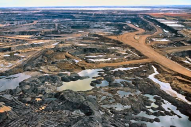
Climate change is a contentious topic in Canada, largely due to the nation’s long-standing ties to the fossil fuel industry. At the forefront of Canadian discourse on this topic is the Province of Alberta’s famous “dirty” tar sands oil production. This is followed closely by the coal-fired electricity industry. From a high-level perspective, these two well-established, carbon-intensive industries, combined with the provincial and federal governments’ reluctance to limit their emissions in a meaningful way, form the basis upon which Canada has historically failed to engage in climate change discussions and continues to fail to significantly address climate change.
read more »
Posted in Answers to your questions, Technology on 07/29/2009 02:19 pm by Administrator

I agree that wind and nuclear energy are not intrinsically opposed to each other. However, France only has wind power because it’s forced to by the European Union.
David Walters
read more »
Posted in Answers to your questions, Technology on 10/20/2009 04:13 pm by Administrator

Will it be possible to build all the necessary nuclear power stations in time, what emission savings can be made and will the nuclear industry close them down when and if they are not needed?
Shaun Bernie
read more »
Posted in Answers to your questions, Technology on 05/28/2010 12:51 pm by Administrator

Have you ever looked at “alternative” nuclear technologies, for example molten salt reactors (or liquid fluorides as today are termed)?
Allessandro De Maida
read more »
Posted in Answers to your questions on 07/13/2010 06:00 pm by Stephen Tindale

How are you going to persuade people like me to accept new nuclear power plants when no-one seems to have a strategy for dealing with the radioactive waste from the old installations?
Caroline Westgate
read more »
Posted in Repowering communities on 06/21/2010 10:09 am by Stephen Tindale

I am writing a book, with Prashant Vaze and Peter Meyer on the role that local, regional and state governments should play in increasing energy efficiency and promoting low carbon energy. This will be published by Earthscan in 2011.
read more »
Posted in Policy, Technology on 09/26/2013 11:03 am by Stephen Tindale
Video of my TEDx talk about how I had to change my view on nuclear energy when I realised that it is necessary during the low-carbon transition.
read more »
Posted in Policy, Technology on 04/30/2009 12:00 am by Stephen Tindale
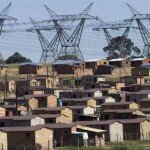
The ANC government has connected 80% of all South Africans to the electricity grid – one of its greatest successes. However, this mass electrification programme, combined with strong economic growth and rapid industrialisation, meant that demand for power outstripped supply in early 2008.
read more »
Posted in Comment, Policy, Technology on 01/25/2017 09:47 am by Stephen Tindale
The low-carbon energy sectors – efficiency, most renewables, CCS and nuclear – should work together more strategically
read more »
- Tags: biomass, carbon capture, CCS, CHP, decarbonisation, energy efficiency, nuclear power, renewables, solar power, solar thermal, tidal power, wind power
Posted in Policy, Technology on 03/13/2009 09:19 am by Stephen Tindale
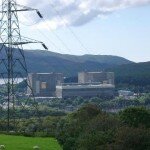
In my opinion, everyone should support the construction of new nuclear power stations in the UK.
I have spent the last two decades arguing and campaigning against nuclear power, working for NGOS, think tanks and the government. However, the climate crisis is now so great that we must do everything we can – whatever the economic cost – to control it.
read more »
Posted in Comment, Policy on 06/27/2016 08:02 am by Stephen Tindale
What will be the impact of Brexit on clean energy in the UK? Answer: nobody knows, because nothing is remotely clear in British politics now. Who will be prime minister? Will there be an early general election? What will be the relationship between the UK and the remaining EU member-states? Will there even be a […]
read more »
Posted in Technology on 06/10/2011 10:04 am by Stephen Tindale

The Centre for European Reform (CER) has now published my short report on what the EU should do about nuclear power after the events at Fukushima.
read more »
Posted in Policy, Technology on 11/13/2009 10:49 am by Stephen Tindale

Yesterday (9 November 2008), the UK Energy and Climate Change Secretary, Ed Miliband, published National Policy Statements (NPS) outlining the government policy on energy. They consist of guidance to the new Infrastructure Planning Commission (IPC), which, from next March, is due to grant or refuse planning permission on major energy and transport infrastructure projects. The statements are area a mixed bag – good on renewables, nuclear and electricity networks, but less good on coal.
read more »
Posted in Comment on 05/11/2015 08:31 am by Stephen Tindale
Tory manifesto indicates no major change in energy policy, with exception of end to subsidy for onshore wind. But UK engagement with EU energy union looking less likely.
read more »
Posted in Answers to your questions on 03/22/2011 10:41 am by Stephen Tindale

Why can’t we get to clean energy without using nuclear power?
Russell Frerichs
read more »























